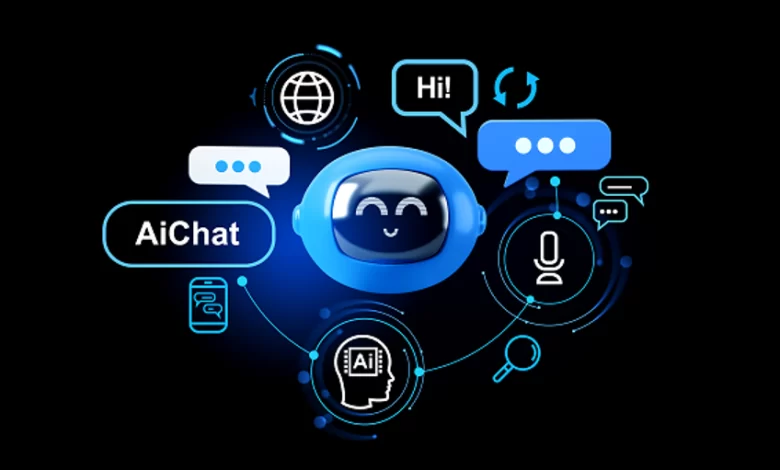
Imagine a world where your customers never have to wait on hold, where their issues are resolved almost instantly, and where every interaction feels personalized and thoughtful. Sounds too good to be true?automation
Thanks to the advancements in Artificial Intelligence (AI) has revolutionized various industries, and customer service is no exception. This blog explores the various ways AI is reshaping customer service, its benefits, challenges, and prospects.
The Evolution of Customer Service
Historically, customer service has relied heavily on human agents handling queries via phone calls, emails, or in-person interactions. While effective, these methods often led to long wait times, inconsistent service quality, and high operational costs.
With the advent of the internet and mobile technologies, customer service began to transition towards digital platforms. Email support, live chat, and social media emerged as new channels for customer interaction, offering more convenience and accessibility.
The integration of AI into customer service represents the latest evolutionary step. AI technologies such as machine learning, natural language processing (NLP), and robotic process automation (RPA) are now being deployed to provide faster, more efficient, and personalized customer experiences. CX automation is at the forefront of this transformation, enabling businesses to streamline their customer service processes and deliver exceptional experiences.
How AI is Transforming Customer Support
AI-Powered Chatbots
Chatbots are one of the most common applications of AI in customer service. These AI-driven programs can handle a wide range of customer queries, from answering frequently asked questions to processing orders and providing technical support. CX automation through chatbots offers several advantages:
- 24/7 Availability: Unlike human agents, AI chatbots are available around the clock, providing instant responses to customer queries.
- Cost-Effective: Chatbots reduce the need for large customer service teams, lowering operational costs.
- Scalability: AI chatbots can handle multiple queries simultaneously, ensuring that customers receive timely assistance during peak times.
Virtual Assistants
Virtual assistants like Amazon’s Alexa, Apple’s Siri, and Google’s Assistant are also making their mark in customer service. These AI-powered assistants can perform a variety of tasks, from setting reminders and providing product recommendations to troubleshooting issues.
- Personalization: Virtual assistants can leverage customer data to offer personalized recommendations and solutions, enhancing customer satisfaction.
- Voice Recognition: Advanced voice recognition capabilities enable virtual assistants to understand and respond to customer queries more accurately.
Predictive Analytics
AI-driven predictive analytics uses historical data to forecast future customer behavior and preferences. This technology enables businesses to proactively address customer needs and improve service quality.
- Customer Retention: By identifying patterns in customer behavior, predictive analytics can help businesses identify at-risk customers and implement retention strategies.
- Sales Forecasting: Predictive analytics can also be used to forecast sales trends, enabling companies to optimize inventory and improve supply chain management.
Sentiment Analysis
Sentiment analysis involves using AI to analyze customer feedback and gauge their emotions. This technology can be applied to customer reviews, social media posts, and support interactions to gain insights into customer sentiment.
- Improving Customer Experience: By understanding customer sentiment, businesses can identify areas for improvement and enhance the overall customer experience.
- Real-Time Insights: Sentiment analysis provides real-time insights into customer feedback, allowing companies to respond to issues promptly. Additionally, conversational AI customer service is revolutionizing the way businesses interact with customers, offering intuitive, real-time solutions that seamlessly bridge the gap between automated support and personalized human interaction. This innovation ensures that customer concerns are addressed efficiently, enhancing satisfaction and loyalty
Benefits of AI in Customer Service
- Increased Efficiency: AI technologies streamline customer service processes, reducing response times and increasing efficiency. This leads to faster resolution of customer issues and improved service quality.
- Enhanced Personalization: AI enables businesses to offer personalized customer experiences by leveraging data and analytics. Personalized recommendations and solutions can significantly enhance customer satisfaction and loyalty.
- Cost Savings: By automating routine tasks and handling a large volume of queries, AI reduces the need for extensive customer service teams. This results in significant cost savings for businesses. By automating routine tasks and handling large volumes of queries, AI reduces the need for extensive teams. For example, Rosie AI provides 24/7 call answering and intelligent routing, letting small businesses cut costs while still delivering personalized, reliable customer service.
- Scalability: AI-driven customer service solutions are highly scalable, allowing businesses to handle increased customer demand without compromising service quality. This is particularly beneficial during peak times or seasonal spikes in demand.
Challenges of Implementing AI in Customer Service
- Data Privacy and Security: One of the primary concerns with AI in customer service is data privacy and security. Businesses must ensure that customer data is handled securely and comply with data protection regulations.
- Integration with Existing Systems: Integrating AI solutions with existing customer service systems can be challenging. Businesses need to ensure that AI technologies seamlessly integrate with their current infrastructure to avoid disruptions.
- Maintaining Human Touch: While AI can handle many customer queries, maintaining a human touch is essential for complex or sensitive issues. Businesses must strike a balance between AI automation and human intervention to provide a holistic customer service experience.
- Continuous Improvement: AI technologies require continuous monitoring and improvement to remain effective. Businesses must invest in ongoing training and updates to ensure that their AI solutions are up-to-date and performing optimally.
Prospect of AI in Customer Service
As NLP technologies continue to advance, AI-driven customer service solutions will become more adept at understanding and responding to customer queries. This will lead to more accurate and natural interactions, further enhancing customer satisfaction. The integration of AI with the Internet of Things (IoT) holds significant potential for customer service.
IoT devices can collect real-time data, which AI can analyze to provide proactive support and personalized experiences. AI will play a crucial role in deriving actionable insights from customer data. Advanced analytics and machine learning algorithms will enable businesses to gain a deeper understanding of customer behavior and preferences.
This leads to more informed decision-making. Future AI systems may be equipped with enhanced emotional intelligence, enabling them to understand better and respond to customer emotions. This will further humanize AI interactions and improve customer engagement.
Conclusion
AI is stepping up to transform customer service in ways we could only dream of a few years ago. By addressing key concerns around efficiency, personalization, and cost, AI is helping businesses deliver exceptional customer experiences. While there are challenges to navigate, such as data privacy and maintaining a human touch, the benefits of AI in customer service are clear.
As we look to the future, the ongoing advancements in AI promise even more innovative solutions to enhance customer support and engagement. Embrace AI today and stay ahead in the game, ensuring your customers receive the best service possible.
Key Takeaways
- AI streamlines customer service processes, leading to faster resolution of issues and improved service quality.
- AI enables businesses to offer personalized customer experiences by leveraging data and analytics.
- AI reduces the need for extensive customer service teams, resulting in significant cost savings.
- AI-driven solutions are highly scalable, handling increased customer demand without compromising service quality.
- Advancements in AI technologies will continue to enhance customer service, offering more accurate, natural interactions and deeper customer insights.
FAQs
- Will AI replace human customer service agents?
While AI can handle many routine tasks, human agents are still essential for addressing complex or sensitive issues. A balanced approach combining AI and human interaction is recommended.
- Can AI personalize customer service interactions
Yes, AI leverages data and analytics to offer personalized recommendations and solutions, enhancing the overall customer experience and satisfaction.
- What are the cost benefits of using AI in customer service?
AI reduces the need for large customer service teams, lowering operational costs. It can handle multiple queries simultaneously, making it a cost-effective solution.
- How does AI handle data privacy and security concerns?
Businesses must implement robust data protection measures and comply with regulations to ensure customer data is handled securely when using AI technologies.






